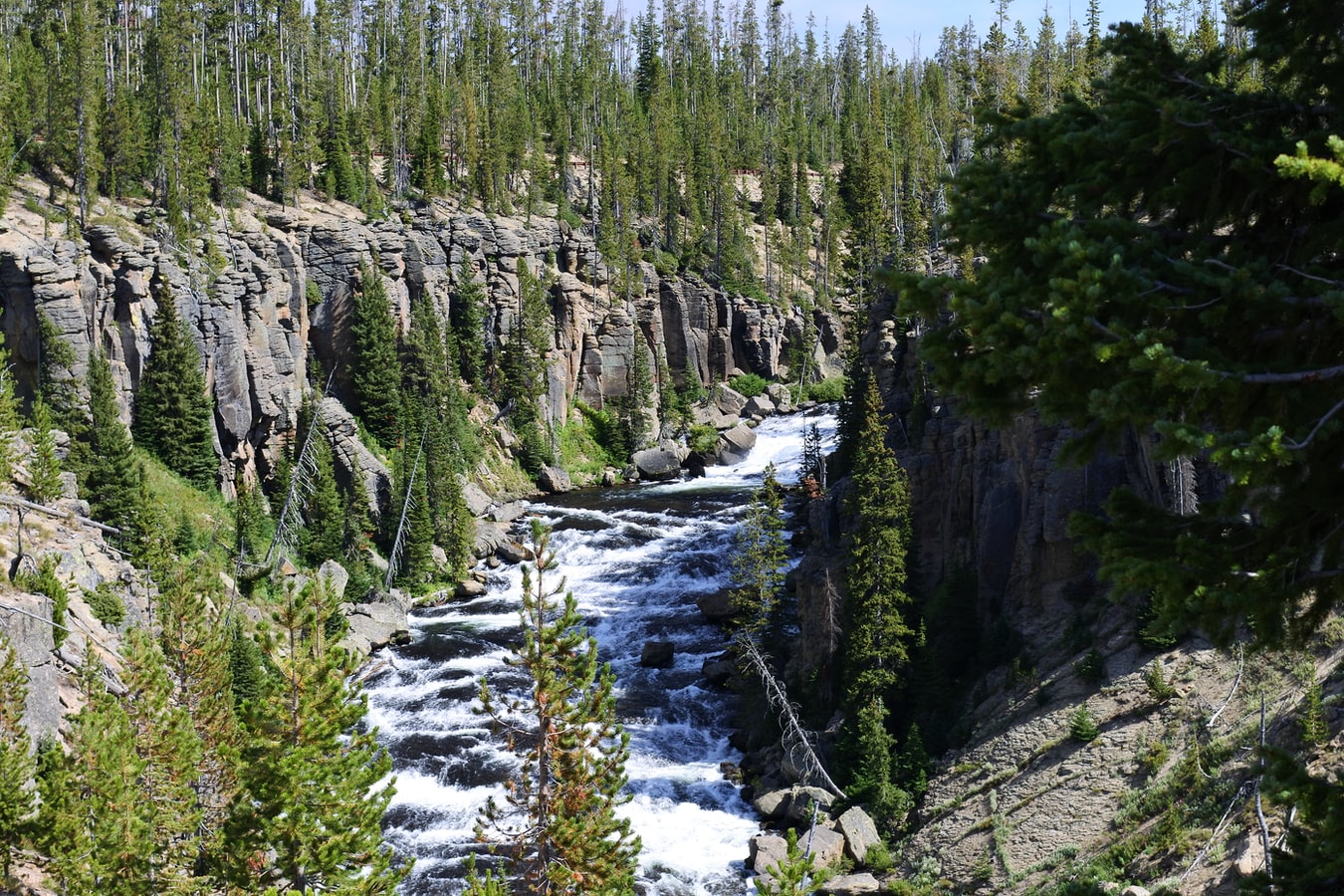Making It In the Mid-Years

Within two hours of beginning our trip, I knew my friends and I had finally grown up.
Last summer, we celebrated our 40th birthdays by performing all six elements of the Tim McGraw song, "Live Like You're Dying." This song is set up as a letter from a guy who realizes life is too short. The chorus elicits adventure in the face of soulless security, a message sure to resonate with about 8 million people to hit age 40 by decade's end, according to the U.S. Census.
Sky diving, bull riding, and rafting comprised our baptism into middle age. The Rocky Mountains were the chapel, and the agent-40-degree white water. Together, we bid adios to youth and hola to the guy in the mirror, sagging as he is.
The four of us had first met in 1986 at our alma mater, Olivet Nazarene University. Since then, life took us places: Kevin sells $300 million (USD) telecom deals, Dan produces 1.5 million (USD) vials of medicine each year, Tim develops a mortgage deal every day, qualifying in the nation's top 25, I'm a college administrator. Between us are 70 years of marriage, 11 kids, and 7 church responsibilities.
But "success" has mirthless qualities. While you nurture it, it coolly mocks you, reminding you that you're less in control than you think.
Our baptism's eve on a Bennigan's patio in Colorado Springs featured more lament than bravado over bifocals, loss of hair on our heads, growth of hair in our ears, and waking up at 4 A.M. every other morning.
Aging is an equal opportunity employer. But that was the point of our expedition. Live now. Live well. We stood ready to prove, as Oscar winner Rex Harrison said, that we're just as good as we never were.
Mid-Life: Milestone or Millstone?
Age 40 isn't a day of reckoning for us alone. Buddha, Muhammad, and Saint Ignatius each regarded it as a turning point. The Mishnah, a letter of Judaism, identifies age 40 as a threshold in discernment for rabbis. Gordon Harris' study of 14 Old Testament Israeli kings, in Biblical Perspectives on Aging, shows an average age of 44, plus 40-year stages of Moses' life, and 40-year reigns of Saul, David, and Solomon.
Lifespans vary from 47 in 18th century America to 25 during the Roman Empire and 33 in modern Swaziland, Africa-no midlife crisis there. As my host during a 2004 trip to Kenya said, there is no middle trauma when you never had dreams to ruin or a future to crave.
Still, for those who survive four decades, the blues transcend culture and prosperity. A survey of 2 million people in several countries shows a consistent dip in life satisfaction between ages 40 and 50 regardless of socioeconomic or marital status, according to Scientific American. That's when responsibilities begin to trump recreation, and dreams are threatened by a chemical bath of duties.
All this makes age 40 a milestone-to-pass or millstone-to-grind. For some, it's paralyzing. Suicide in the age group has surged 20 percent among Americans since year 2000. The rate in my home county spiked 25 percent above the state average. Surely, God has more for us than such sorrow after we hit 40.
An Emerging Elder's Elixir
Scripture provides what secular society can't: esteem in aging. From Genesis to Revelation, youth is not a fleeting apex in development, but groundwork for bearing the image of God with ever-perfecting fidelity. A pure heart weds spiritual maturity. White hair is not a crown of groaning, but of glory (Proverbs 16:31). God values elders.
Harris says God's "great passion" is the rights, needs, and authority of the aging. Moderns might disdain the less vigorous, but He protects them (Leviticus 19:32). And Jesus granted special merit to elders by criticizing Pharisees who failed to give them dignity.
So the mid-life years are a transition to eldership. In Christ, diminishing physical properties and accelerating responsibilities are not a vice, but a form, molding us into the most influential vessel of God-the wise, righteous elder.
We move from self-absorption in the 20s to significance in the 40s and 50s by calibrating to God's view of life, not man's. Young adulthood may be about learning how, but midlife is about choosing what. As Italian poet Casare Pavese says, "From the moment you turn 40, you're responsible for your face." What does yours say? And mine?
"Rites of Passage," from the Rockies
So we took control of our faces last summer. We decided our 40th year contained a chance not to escape reality but find it again. About 2,500 miles and a few life-threatening experiences later, we discovered the water isn't so cold in middle age baptism.
One line from the chorus of our Tim McGraw theme song required something deeper than to traffic in testosterone. Those who live like they're dying don't just ride bulls or skydive. They speak sweeter than they ever have before. We decided the song, the Mishnah, and Scripture need not be the only letters defining our experience. We wrote to our 11 kids, and sealed the letters for them to read when they graduate from high school.
Writing our present and our hopes for their future manufactured a moment Father Time can't steal. A half-decade from now, they'll read in their present and our past. But in those pages we'll share something between generations-parallel rites of passage.
My letter said in part: "This letter went a few places with me. That's how I wanted to inaugurate middle age, with you on my mind and in my pocket."
Gregg Chenoweth is vice president for academic affairs at Olivet Nazarene University.
Holiness Today, November/December 2009
Please note: This article was originally published in 2009. All facts, figures, and titles were accurate to the best of our knowledge at that time but may have since changed.




